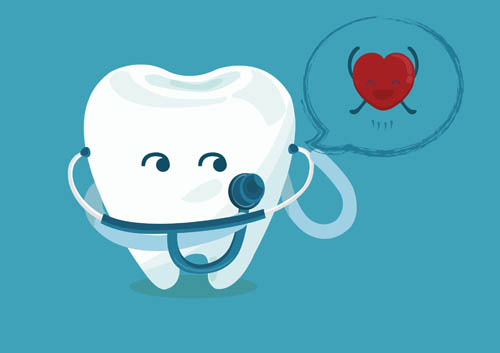Keeping Your Teeth Strong and Healthy
May 24th, 2025

What is the strongest part of our bodies? Do you think it might be our bones, which help us move and protect our brains, hearts and other organs? Or could it be those tough fingernails and toenails that guard our fingertips and toes? Nope! You might be surprised to learn that the hardest thing in our bodies is the enamel which covers our teeth!
Our bones grow with us and can even knit back together in case we have a broken arm or leg. Our toenails grow more slowly, and our fingernails grow more quickly, so regularly trimming is required for both. But our enamel doesn’t grow or repair itself when it is damaged, so it needs to last us a lifetime. How can such a strong part of our bodies be damaged? And can we do anything to protect our teeth? Luckily, we can!
Prevent Chips and Cracks
You might be the fastest on your bike, or the highest scorer on your basketball team, or able to do the most amazing tricks on your skateboard. But even the strongest teeth can’t win against a paved road, or an elbow under the basket, or a cement skate park. If you’re physically active, talk to us about a mouthguard. This removable appliance fits closely around the teeth and can protect your teeth and jaw in case of accident. And protect your enamel even when you’re not being adventurous! Don’t bite down on ice cubes or hard candy, and save your pens and pencils for writing, not chewing.
Guard Your Teeth from Tooth Grinding
If you grind your teeth, you’re not alone! Many other young people do, too—mostly in their sleep. In fact, it might be a parent or sibling who lets you know you are grinding at night. But constant pressure on your enamel can lead to cracked enamel, sensitivity, and even worn down teeth. How can you protect them? Once again, a mouth guard can be a great solution. We can custom fit one to allow you to sleep comfortably while protecting your teeth.
Eat Healthy Foods & Brush Regularly
We all have bacteria in our mouths. Some are helpful, and some are not. The bacteria in plaque can change food products like sugar and starches into acids. These acids actually break down our enamel, which can lead to tooth sensitivity and decay. Making sugars and carbs a small part of your regular diet, and eating meals rich in proteins, vitamins, and minerals, will help stop acids from attacking your enamel. And careful brushing and flossing twice a day with a fluoride toothpaste can help keep those minerals in enamel from breaking down and even help restore them.
Your enamel is the strongest part of your body, and you can help it stay that way. Protect your teeth from accidents, let our Marrero team know if you or a parent suspect you are grinding your teeth, eat healthy foods, and keep up your regular brushing. And remember, we are here to help keep your family’s teeth and mouth their healthiest for your strongest, most beautiful smile.



